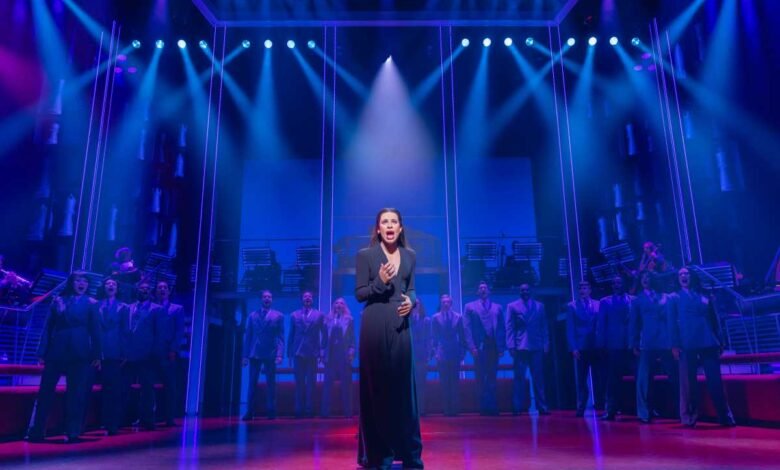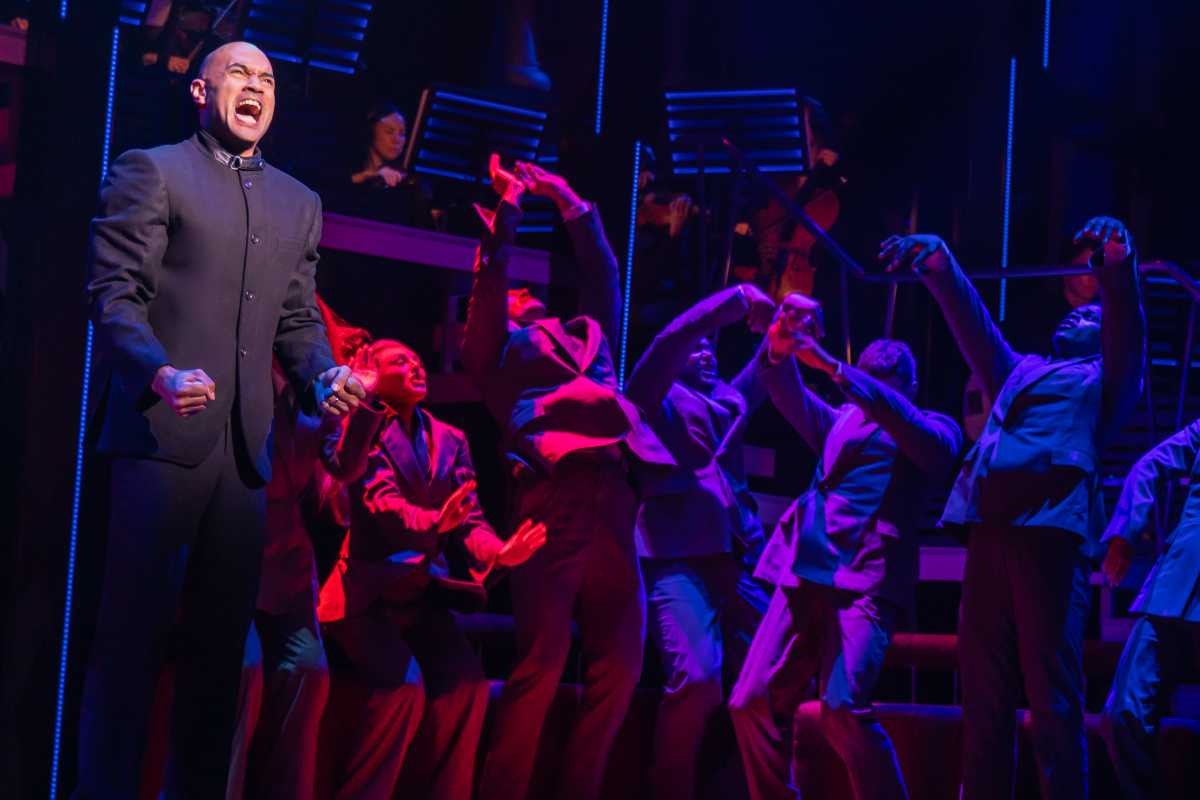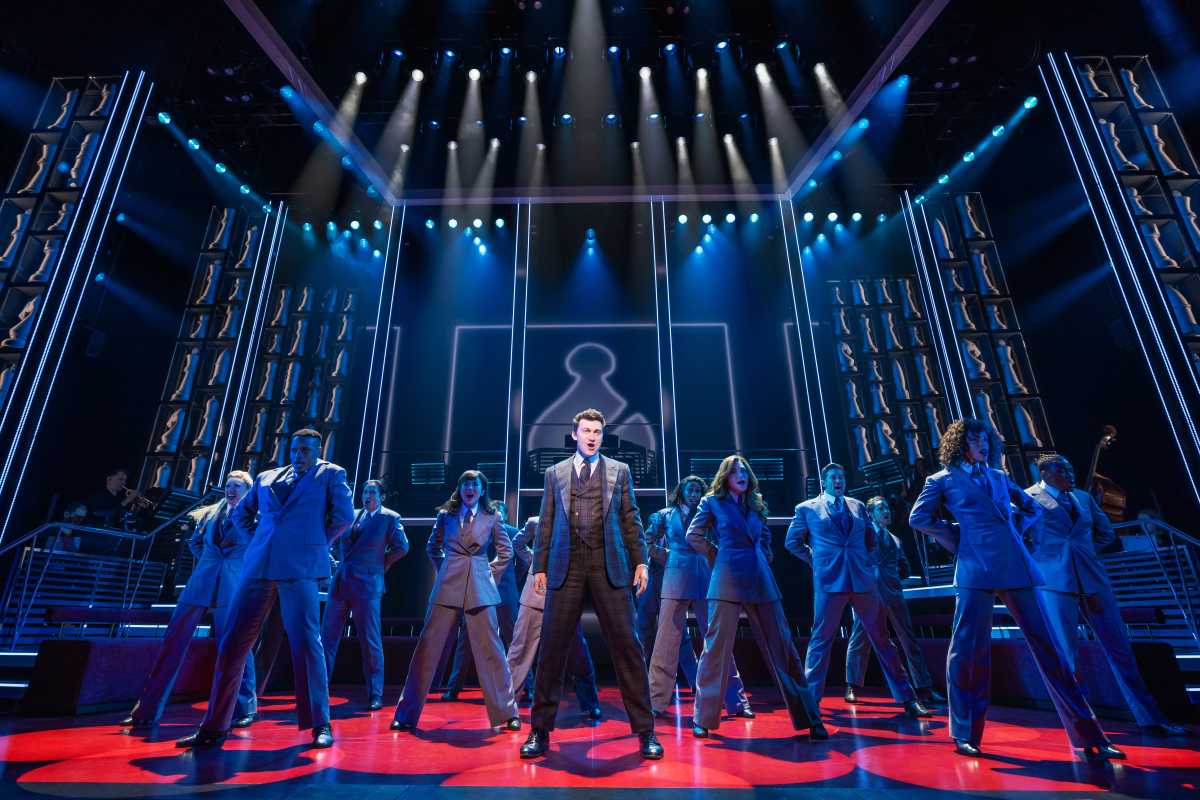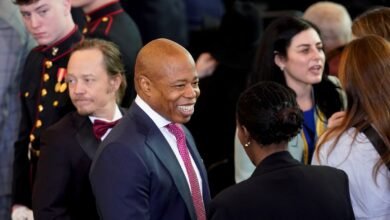

Lea Michele as Florence Vassy in “Chess”
Photo by Matthew Murphy
If you think the game of chess is complicated, wait until you see the new Broadway revival of “Chess,” which turns a Cold War musical into a Cold War migraine—albeit one sung spectacularly.
For those unfamiliar with it, “Chess” is one of musical theater’s great paradoxes: a phenomenal pop-opera score attached to a famously unwieldy book about a Cold War–era chess showdown between two world champions—hot-headed American prodigy Freddie Trumper (Aaron Tveit) and dignified Soviet grandmaster Anatoly Sergievsky (Nicholas Christopher)—and Florence Vassy (Lea Michele), Freddie’s brilliant and long-suffering second who becomes personally drawn to Anatoly.

The show attempts to fuse a love triangle with East–West propaganda, surveillance, and psychological maneuvering, but these elements have never fully cohered.
Conceived in the early 1980s by Benny Andersson and Björn Ulvaeus of ABBA with lyrics by Tim Rice, “Chess” began as a hit concept album, spawned international singles, opened in London in 1986, and flopped on Broadway in 1988 after extensive rewriting. Ever since, fans have clung to the score, while directors have tried—and consistently failed—to fix the show’s storytelling.
The new Broadway revival once again attempts the impossible, under the direction of Michael Mayer and book writer Danny Strong. On paper, their involvement suggested a clear-eyed rethink: Mayer excels with emotional pop-rock material (“Spring Awakening,” “American Idiot”), while Strong has a reputation for structuring complex political narratives (“Dopesick,” “Empire”). In reality, the production feels caught between apologizing for the musical and re-enacting it—all while relying on its three stars to deliver the songs that keep the evening afloat.

The most obvious sign that this isn’t a traditional “Chess” is the expanded Arbiter, now functioning as a full-blown emcee. Bryce Pinkham (“A Gentleman’s Guide to Love and Murder”) plays him with manic sharpness, narrating, joking, editorializing, and constantly reminding the audience that this is a Cold War musical with a chaotic past. The sheer volume of commentary leaves little space for the characters themselves. Moments that should build tension instead stop cold so the Arbiter can explain (or mock) what we’re watching.
Mayer’s staging reinforces the quasi-concert vibe. The ensemble sits on benches along the sides, observing like backup singers. Chess matches aren’t dramatized; they’re announced into microphones, as if we’ve wandered into a radio broadcast. A neon square descends, projections flicker, the stage remains spare except for a few platforms, and the overall effect is that of a high-budget concert staging that never pretends otherwise.
But if “Chess” is going to function as a concert, it at least has the performers to deliver one. Christopher, who stood by for Sweeney Todd in the 2023 revival, brings a resonant voice and a steady, thoughtful presence to Anatoly, even though the character remains drawn in extremely broad strokes. Aaron Tveit, who also played Sweeney Todd in the same production, unleashes a soaring “Pity the Child” as Freddie. His performance isn’t deeply acted, but the power ballad lands with force.
Michele, launched by “Spring Awakening,” elevated to pop-theater phenomenon through “Glee,” and credited with saving the recent “Funny Girl,” supplies star power and crystal-clear vocals. “Nobody’s Side,” “Heaven Help My Heart,” and her duet with Hannah Cruz on “I Know Him So Well” land not because Florence is richly rendered, but because Michele sings them with authority and focus.
After the revelatory 2023 revival of “Merrily We Roll Along,” which finally clarified another difficult 80s musical, there was hope that “Chess” might enjoy a similar breakthrough. This isn’t that breakthrough. But when the commentary dies down and the music takes over, the show soars, proving again why people keep trying to resurrect it.
As drama, “Chess” remains a puzzle. As a concert, though, it can be thrilling—and in this production, that’s what ultimately wins.
Imperial Theatre, 249 West 45th St., chessbroadway.com. Through May 3.




